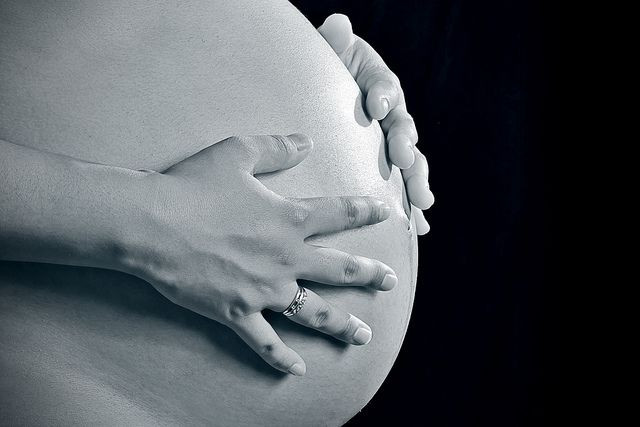Breast Cancer Prevention: Getting Pregnant Younger And Breastfeeding May Protect You From Breast Cancer

One of the leading causes of cancer death among women of all races, breast cancer was diagnosed in 211,731 women during 2009, while 40,676 women died from the disease in the U.S. alone.
In western countries, breast cancer has become increasingly common among younger women, and the World Health Organization reports that the disease is on the rise in the developing world as well due to generally longer life spans and other factors, such as urbanization and adoption of western lifestyles.
For these reasons, researchers at San Cecilio University Hospital in Granada (Spain) decided to investigate possible causes and preventive measures for breast cancer.
Half A Year
Making a retrospective study of patients diagnosed with breast cancer, the researchers evaluated which factors influenced the development of cancer in women who had given birth (as well as those who had not); these factors included whether a woman had breastfed her children (and if so, for how long), obesity, family history of cancer, smoking habits, and alcohol consumption.
For the study, Emilio González-Jiménez and his co-researchers perused 504 medical records of female patients, ranging in age from 19 to 91, who had been diagnosed and treated for breast cancer at the San Cecilio University Hospital from 2004 to 2009. They collected and analyzed data from the clinical histories of each patient and considered age of diagnosis and survival.
“The results suggest that for nonsmokers, breastfeeding for more than six months not only provides children with numerous health benefits, but it also may protect mothers from breast cancer,” said González-Jiménez.
Specifically, the researchers found that women who underwent childbirth and who breastfed were diagnosed with breast cancer at a later age, regardless of their family history of cancer. Nonsmokers who breastfed for periods of longer than six months tended to be diagnosed with breast cancer much later in life — an average of 10 years later than nonsmokers who breastfed for a shorter period. In contrast, female smokers obtained no significant benefit from a longer period of breastfeeding. Worse, these women were diagnosed with breast cancer at a younger age.
Other studies, as catalogued by the National Cancer Institute (NCI), suggest that full-term pregnancy may also have a preventative effect — but only when it happens early enough in a woman’s life.
Read more: The Personality Of Breastfeeding: Extroverted Mothers Less Likely To Use Baby Formula
Links To Reproductive History
Noting that pregnancy-related factors appear to decrease a woman's risk of developing breast cancer, the NCI lists various factors that may act as a cancer deterrent.
In women who have a first full-term pregnancy before age 20, the risk of developing hormone receptor-positive breast cancer is about half that of women whose first full-term pregnancy occurs after the age of 30. About two-thirds of breast cancers test positive for hormone receptors. Hormone receptors are special proteins inside the cancer cells; when the hormone progesterone or estrogen attaches to them, this causes the cancer cells to grow.
Yet, a woman's age at her first full-term pregnancy does not appear to reduce her risk of developing hormone receptor-negative breast cancer.
Women who have given birth to five or more children have half the risk of women who never become mothers, while breast cancer risk for a mother generally declines with an increasing number of children.
Women who have had preeclampsia, a complication that affects five to 10 percent of pregnancies globally, may have a decreased risk of developing breast cancer.
Yet, not all pregnancies result in a lower risk of breast cancer. For instance, women who have had an induced or spontaneous abortion (miscarriage) appear to have neither an increased or decreased risk of breast cancer (or other cancers, for that matter).
Shockingly, though, women who are older than 30 when they give birth to their first child appear to have a higher risk of breast cancer than either women who give birth at a younger age or women who never become mothers.
And, in the short term, women who have recently given birth suffer a temporary increased risk of breast cancer that declines after 10 years. Science cannot provide a definitive reason for this effect.
Read more: Breastfeeding Reduces Alzheimer’s Risk — For Mothers
Sources: González-Jiménez E, Garcia PA, Aguilar MJ, Padilla CA, Alvarez J. Breastfeeding and the prevention of breast cancer: a retrospective review of clinical histories. Journal of Clinical Nursing. 2013.
National Cancer Institute Fact Sheet. Reproductive History and Breast Cancer Risk. 2011.
Published by Medicaldaily.com



























